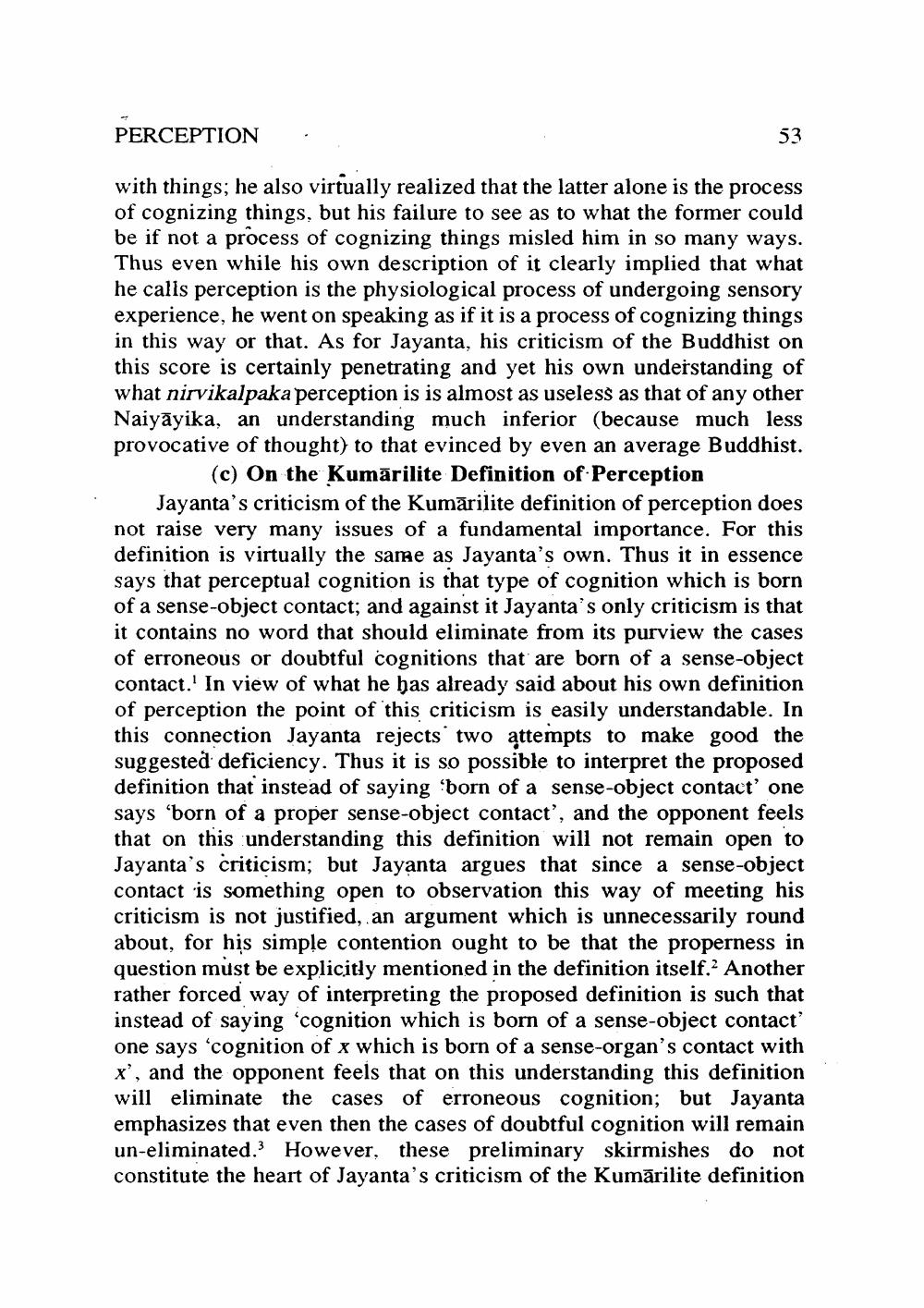________________
PERCEPTION
53
with things; he also virtually realized that the latter alone is the process of cognizing things, but his failure to see as to what the former could be if not a process of cognizing things misled him in so many ways. Thus even while his own description of it clearly implied that what he calls perception is the physiological process of undergoing sensory experience, he went on speaking as if it is a process of cognizing things in this way or that. As for Jayanta, his criticism of the Buddhist on this score is certainly penetrating and yet his own understanding of what nirvikalpaka perception is is almost as useless as that of any other Naiyayika, an understanding much inferior (because much less provocative of thought) to that evinced by even an average Buddhist.
(c) On the Kumārilite Definition of Perception
Jayanta's criticism of the Kumarilite definition of perception does not raise very many issues of a fundamental importance. For this definition is virtually the same as Jayanta's own. Thus it in essence says that perceptual cognition is that type of cognition which is born of a sense-object contact; and against it Jayanta's only criticism is that it contains no word that should eliminate from its purview the cases of erroneous or doubtful cognitions that are born of a sense-object contact.' In view of what he has already said about his own definition of perception the point of this criticism is easily understandable. In this connection Jayanta rejects two attempts to make good the suggested deficiency. Thus it is so possible to interpret the proposed definition that instead of saying 'born of a sense-object contact' one says 'born of a proper sense-object contact', and the opponent feels that on this understanding this definition will not remain open to Jayanta's criticism; but Jayanta argues that since a sense-object contact is something open to observation this way of meeting his criticism is not justified, an argument which is unnecessarily round about, for his simple contention ought to be that the properness in question must be explicitly mentioned in the definition itself. Another rather forced way of interpreting the proposed definition is such that instead of saying 'cognition which is born of a sense-object contact' one says 'cognition of x which is born of a sense-organ's contact with x', and the opponent feels that on this understanding this definition will eliminate the cases of erroneous cognition; but Jayanta emphasizes that even then the cases of doubtful cognition will remain un-eliminated. However, these preliminary skirmishes do not constitute the heart of Jayanta's criticism of the Kumarilite definition




